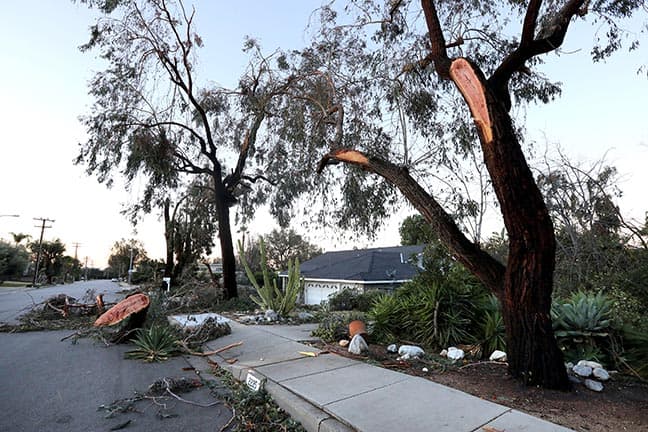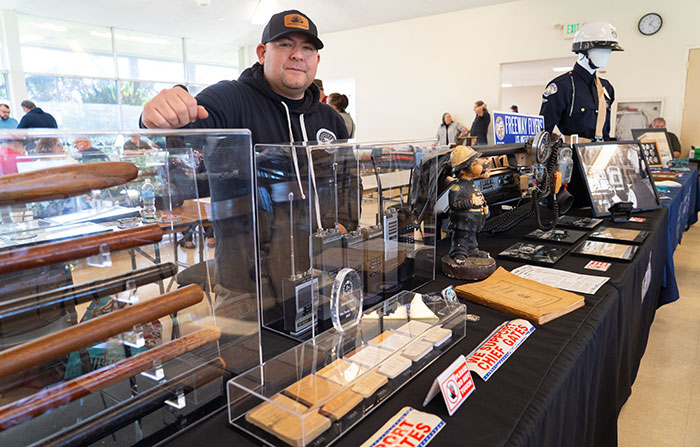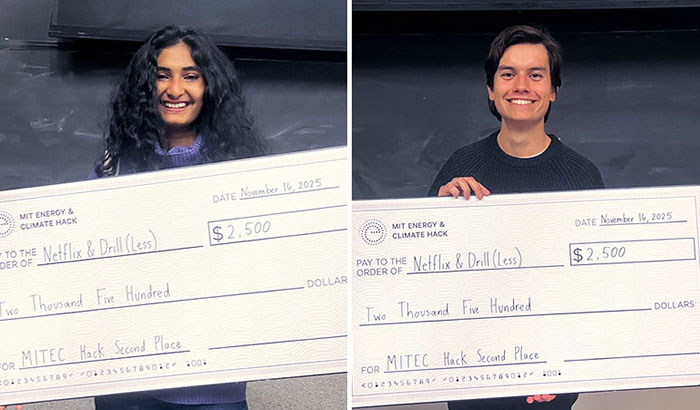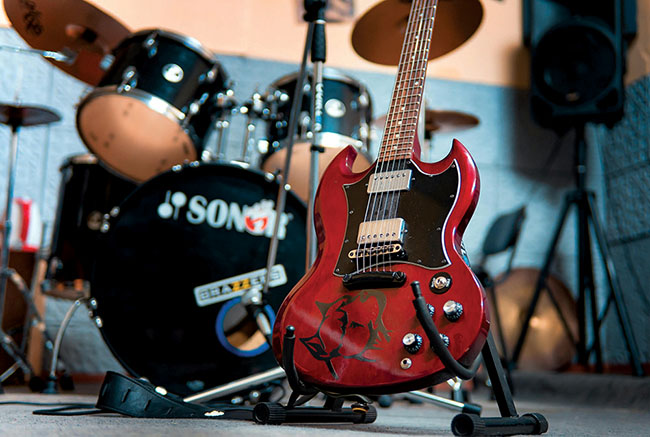2022 Almanac: Ode to a Tree

The red ironbark eucalyptus at 2235 Forbes Avenue in Claremont lost a major limb during the devastating January 21 windstorm, which ended up blocking the home’s driveway. Though the tree was badly damaged it still looked pretty solid, however the city’s arborist deemed it unsafe and the tree was removed in March. COURIER photo/Steven Felschundneff
by Steven Felschundneff | steven@claremont-courier.com
Dear tree,
I never wanted you. Truth be told, when you first came to our home on Forbes Avenue, I was a teenager and took no notice. I could be forgiven because in those days the yard was a bit of a jungle, with lemon trees, oleander and ivy obscuring the nondescript old grove house. So, a tiny sapling just blended into the thicket. Besides, I had other priorities.
It wasn’t until after my parents died and I became the new caretaker of the old grove house that I considered you at all. That was in April 1999, when I officially moved back to Claremont with my lovely girlfriend Grace. By then, you were no longer hidden by the thicket and dominated your corner near the driveway.
I remember your rough texture, and dark color, which inspired the name: red ironbark eucalyptus. I remember the soft rouge flowers, the sound the breeze made through thousands of leaves and, yes, your habit of dropping branches and other debris.
In summer’s unending heat, those thousand leaves provided respite. The flowers brought the squawking hordes of florescent parrots. In the golden light of a late fall sunset, you stood starkly silhouetted against the growing darkness.
There was another red bark eucalyptus on the north side of the yard, but you were my favorite. Not sure why. Maybe, like with people, it was just chemistry.
Soon after our arrival, Grace had an announcement, “I want a cactus garden.” But you had a secret. You were not ours but part of the collective “urban canopy” of city street trees, and were spared the chainsaw that took down every other living object that stood in the way.
The scrappy remains of the jungle slowly receded, revealing a clean slate for grass palm, Hercules club, barrel cactus and way too much agave. At first, as native of Australia, you kind of fit in to the new aesthetic. But then your messy side came out.
Every summer, untold scores of wedge-shaped leaves dropped from your branches coming to rest in the most inconvenient places, mocking me as if to say, “I shall defy any and all attempts at raking.” Your dark red sap stained the newly-installed decomposed granite, turning it into a hardened cake resembling asphalt. And then there were the berries.
“The fruit is a woody cup-shaped to shortened spherical capsule,” as the berries are so delightfully described in your botanical identification. The description failed to mention, however, that these spherical capsules would number in the thousands and literally cover the landscape, finding the most challenging areas to rest. Lodging themselves between rocks or inside the thorny protection of their cactus coconspirators. The little devils could be dangerous. Acting like a field of ball bearings they’d deliver a nasty encounter with gravity to the inattentive passerby.
Over the years, I learned to live with the notion that our yard would never be completely free of all the debris. So, we did our best to make the center pathway and core garden clean while leaving you to your corner.
But then came January 21, and the odd forecast for wind, which seemed unusual in early winter, but by late afternoon it was decidedly breezy. Just after sunset, the gusts really picked up, pelting the old grove house with rocks and spherical capsules. Around nine, we made the incalculably poor decision to go check out the storm.
The hurricane winds had already torn off one of your massive limbs, blocking the driveway where you stood sentry for decades. The deafeningly loud wind obscured the sound of your limbs falling. As Grace stood by in disbelief, a giant limb twisted and fell from the tree to the north.
The next day, it was the same sad story throughout the City of Trees. In every neighborhood, the wind had ripped up stately old oaks, toppled the tallest pine around, damaged homes, blocked streets and torn up sidewalks.
Your glorious limbs lay in the street for weeks, slowly dried in the sun, and were scavenged by firewood collectors, until the workers came and hauled the detritus away. A few days later the white dot appeared on your trunk.
The neighbors expressed general confusion over the white dots, which marked nearly every red ironbark eucalyptus up and down the street. Before long we knew the truth. The dots meant the city’s arborist had declared the tree unsafe.
To my untrained eye you appeared to have survived the storm rather well. The ferocious winds had removed much of your summer bulk, so trimming could be put off a year or two. But my opinion mattered little. On the last night you were here, I took your picture one last time silhouetted against the setting sun.
On March 9, with an audience of friends and neighbors, the efficient tree cutting crew came, and within ten minutes brought down what the storm had not. For a brief time, you lay across Forbes, blocking travelers.
Since your departure, it hasn’t been entirely sad. For one, the cactus garden can at last be as we envisioned, a desert oasis. From the red asphalt earth, a eucalyptus bush erupted from your still-living roots, which I am actively trying to kill. Sorry. And, of course, those infernal berries may not be gone yet, but production has ended. I have no doubt that will be your lasting legacy.
I do miss the shade over our land these last few months as summer takes its hold. This fall, I imagine the parrots won’t return, or will pass overhead heading to another feeding ground. Standing on Forbes, the sunset will now be unobstructed.
Goodbye Mr. Tree,
Steven









0 Comments